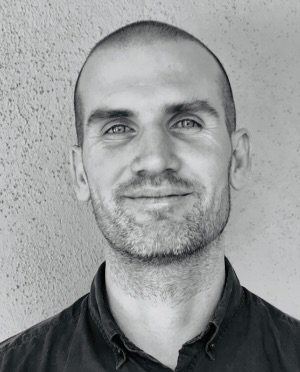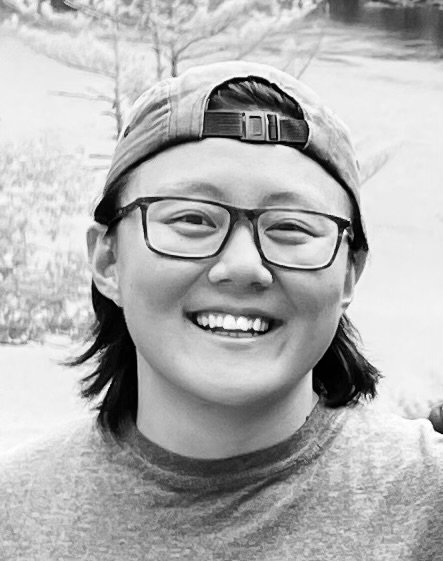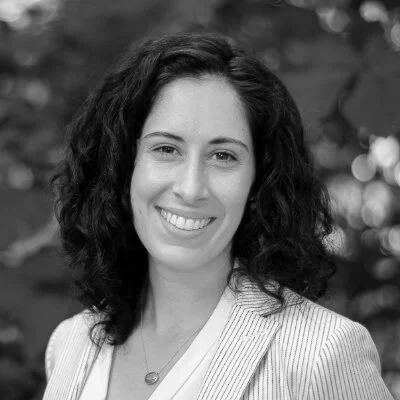PRINCIPAL INVESTIGATOR: THALIA WHEATLEY
Lincoln Filene Professor of Human Relations | External Faculty, Santa Fe Institute
Photo credit: Rob Strong
As a political science major in college, I took an elective that sounded interesting and easy: Social Psychology. It turned out to be one of the hardest classes I took in college and the most riveting. It was taught by Dan Gilbert who became first a mentor then collaborator and friend. I abandoned political science and went on to graduate school in psychology at the University of Virginia.
At UVA I worked with Tim Wilson and Dan Wegner researching the human tendency to mis-predict our emotional responses (Wilson) and the illusory nature of conscious will (Wegner). While studying consciousness with Dan W, I became interested in the emerging field of neuroimaging and how the brain might inform psychological questions. I pursued this interest in an NIMH postdoc with Alex Martin where I learned fMRI and, more importantly, how to think about the brain.
I am now the Lincoln Filene Professor of Human Relations at Dartmouth and I direct the Consortium for Interacting Minds, a multi-lab consortium focused on understanding why and how people interact. I am also external faculty at the Santa Fe Institute—a community of thinkers from the arts, humanities and sciences who aim to better understand the rich complexity that defines the world and how we live.
POSTDOCTORAL FELLOWS
JD KNOTTS
JD received his PhD from UCLA where he worked with Dr. Hakwan Lau. He is currently a postdoctoral fellow with Dr. Sian Beilock, David Kraemer, and Thalia Wheatley. His research uses fMRI to investigate the neural systems, within and across brains, that support complex human behavior from managing our own emotions to creating new ideas with other minds.
EMMA TEMPLETON
Emma received her A.B. in Psychology from Harvard. There, she worked in Jason Mitchell's lab, most closely with Diana Tamir. After graduating, Emma worked as the lab manager of the Stanford Social Neuroscience Lab, led by Jamil Zaki. As lab manager, Emma conducted studies investigating social influence and how social media use impacts our experiences. For her PhD and current postdoc, Emma has been investigating what makes conversation good. Personal website.
GRADUATE STUDENTS
CAITLYN LEE
Caitlyn Lee received her bachelor’s degree with honors in Psychology and Computer Science at Dartmouth. Prior to becoming a graduate student, she worked on the Alexa A.I. at Amazon Research as a software engineer. Caitlyn is currently researching how social networks change. To this end, she has developed an app people can use to document changes in their social ties over time as well as software to help capture interactions in ecologically valid contexts.
CHRIS WELKER
Chris received his bachelor's degree with honors from Cornell University. Prior to becoming a graduate student, he completed an honors thesis on awkward conversation with Tom Gilovich at Cornell and spent a year as the lab manager of our lab. As lab manager, he studied the relationship between social interaction patterns and centrality in social networks. Now, he is hoping to uncover the complex dynamics of social interaction both in behavior and in the brain.
RESEARCH ASSISTANTS
MARIE CONE LEBEAUMONT
Marie is a 2nd year student majoring in psychology. She is interested in organizational psychology and how environments foster connection. Currently, she is working with Emma Templeton on modeling aspects of conversation.
MATTHEW FAM
Matt is a '21 majoring in Neuroscience and English with a concentration in Creative Writing. He is interested in understanding the neural basis of creativity and language. Currently, he is working on modeling friendship networks online versus in person.
MARIA GOLDMAN
Maria is a sophomore majoring in psychology. She is interested in understanding the factors that influence how we connect. Currently, she is studying how prediction error influences attention in naturalistic settings.
PETER KAISER
Peter is a pre-med, psychology major, and ASCL minor in the class of 2021 from Cleveland, Ohio. He is interested in the underlying mechanisms that make people think and behave differently. He is currently involved in a functional MRI study focusing on curiosity.
ELLIOTT TANG
Elliott is currently a Junior double majoring in Cognitive Science and Music. He is interested in understanding how social and emotional factors play into decision-making. Currently, he is researching the neural correlates of curiosity.
ALUMNI
SOPHIE WOHLTJEN, PHD (2021): Postdoc, University of Wisconsin - Madison
Sophie graduated with highest distinction in music and cognitive science from the University of Virginia, where she was an Echols Scholar. After graduation, she held a postbac intramural research and training award (IRTA) in Alex Martin's lab at the NIH. There, she used MEG to study abnormal brain activity in Autism Spectrum Disorders. She is currently studying how physiological cues (e.g., pupillary dilations) can shed light on how people share attention in order to communicate and connect.
BEAU SIEVERS, PHD (2018): Postdoc, Stanford University
Beau is an alumnus of the Digital Musics masters program at Dartmouth. His research has focused on cross-modal perception of emotion in music and movement. This work included a research trip to rural Cambodia to examine cross-cultural similarities in emotional expression. His PhD focused on the neural basis of how people come to shared understanding. After getting his PhD, Beau was a Research Associate at Harvard with Dr. Josh Greene and is currently a postdoctoral fellow at Stanford.[website]
ADRIENNE WOOD, Postdoc (2018): Assistant Professor, University of Virginia
Adrienne's research centers on the predictors and signals of social connectedness. She received her PhD from the University of Wisconsin-Madison where she worked with Paula Niedenthal. She has published several papers on the sensorimotor bases of emotion perception, the social functions of laughter. and cultural factors that predict the intelligibility of emotional expression. At Dartmouth she spearheaded several projects including the investigation of how movement patterns in large-scale social gatherings predict how social networks form. Adrienne is now an Assistant Professor in the Psychology department at UVA. [website]
LAUREL SYMES, Postdoc (2015-2018): Assistant Director, Cornell University Bioacoustics Research Program
Laurel's research addresses how animals (including people) detect, process, and react to cues in the environment. Her work is particularly focused on understanding how evolution shapes sensory systems and decision-making. These interests have led her to study a variety of organisms, including tree crickets, katydids, frogs, bats, and humans.
After receiving a PhD in Biology at Dartmouth (specializing in Ecology and Evolution), Laurel conducted post-doctoral research at the Smithsonian Tropical Research Institute in Panama and at the University of Wisconsin in Milwaukee. In the summer of 2015, she returned to Dartmouth as a Neukom Fellow for computational interdisciplinary research, where she had a joint appointment in Psychological and Brain Sciences and in Biology. [website]. Laurel is now the Assistant Director of the K. Lisa Yang Center for Conservation Bioacoustics at Cornell.
CAROLYN PARKINSON, PHD (2015): Associate Professor, UCLA
Carolyn received her Cognitive Neuroscience PhD from Dartmouth in 2015. While at Dartmouth, Carolyn received several awards including the Marie A. Center Award for Excellence in Research, Outstanding Graduate Student Teaching Award and a Neukom Prize for Outstanding Research in Computational Science. Her dissertation focused on whether brains encode social position automatically and whether friends have similar neural activity compared to people further removed from each other in their social network. Carolyn is now an Associate Professor and Director of the Computational Social Neuroscience Lab at UCLA where she investigates the neural computations that help people navigate their social networks.
OLIVIA KANG, PHD (2015): Director of Learning, Imprint
Olivia received her Cognitive Neuroscience PhD from Dartmouth in 2015. While at Dartmouth, Olivia received the NSF's GK-12 Fellowship, the Marie A. Center Award for Excellence in Teaching and The Dartmouth Graduate Studies Teaching Award. Olivia was also the 1st Place Winner of the Neukom Prize for Graduate Research in Computational Science in 2015 for her pioneering work with high resolution pupillometry. Her dissertation demonstrated how pupillary dilations reveal what someone is consciously attending and whether two minds are "in sync." After getting her PhD, Olivia became a Harvard College Fellow and then a Harvard Research Fellow where she directed Outsmarting Human Minds. Olivia is the Director of Learning at Imprint.
CHRISTINE LOOSER, PHD (2012): Associate Professor of Business, Senior Director of Solution Design, Minerva
Christine's research at Dartmouth investigated facial cues that convey a mental life. Christine spent three years as a postdoctoral research fellow at Harvard Business School and taught as a Harvard College Fellow. Her dissertation focused on facial cues to animacy --specifically, how a person's eyes broadcast whether "the lights are on and someone is home." Christine received multiple teaching awards at Dartmouth and Harvard including the Marie A. Center Award for Excellence in Teaching. Christine is an Associate Professor of Business at Minerva and their Senior Director of Solution Design. See her Minerva profile here.

















